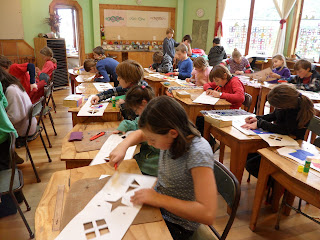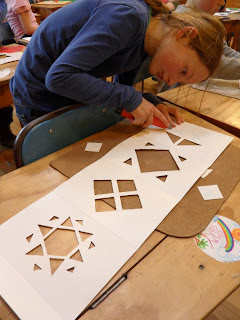New Research
Evidence: The Longevity Project
The new
evidence comes from an unlikely source – an extraordinary longitudinal research
study based on a group of over 1,000 Californian children born early last
century, and whose development was tracked from early childhood throughout
their lives, until they died. More specifically, the Terman Life Cycle Study was initiated in 1922 by Lewis M. Terman as
a study of gifted children in California. Participants were followed throughout
their lives, with evaluations occurring every five to ten years. The research
team of the resultant Longevity Project,
led by Professor Howard S. Friedman
of University of
California in Riverside, supplemented this information
with the collection of death certificates and the construction and validation
of new psychosocial indices, including measures of personality, alcohol use and
mental adjustment. The Terman data therefore offer a unique opportunity to look
at the possible lifelong consequences of early educational milestones. Professor
Friedman and his researchers used data from this sample to examine lifelong
outcomes associated with ages at first reading and school entry.
 |
| Keep on playing kids! |
Based on a
review of the literature, the researchers hypothesised that entering school at
a relatively early age would be associated with lower academic performance and
worse psychosocial adjustment across the lifespan, including increased
mortality risk. They also examined educational achievement, midlife health and
mental adjustment, and alcohol use as potential mediators of these
relations.
The lead researcher of the Longevity Project, Dr Howard S. Friedman, Distinguished Professor of
Psychology at the University of California in Riverside, said:
“In our work on The Longevity Project,
an 8-decade study of healthy aging, we were amazed to discover that starting
formal schooling too early often led to problems throughout life, and
shockingly was a predictor of dying at a younger age. This was true even though
the children in The Longevity Project were intelligent and good
learners. I'm very glad that I did not push to have my own children start
formal schooling at too young an age, even though they were early readers. Most
children under age six need lots of time to play, and to develop social skills,
and to learn to control their impulses. An over-emphasis on formal classroom
instruction-- that is, studies instead of buddies, or ‘staying in’ instead of
‘playing out’ -- can have serious effects that might not be apparent until
years later.”
Their
findings, then, are unambiguous and dramatic: to quote the researchers’ 2009
paper from the Journal of Applied
Developmental Psychology, “Early
school entry was associated with less educational attainment, worse midlife
adjustment, and most importantly, increased mortality risk”.
Commentary on the Findings
 These research findings are somewhat counter-intuitive, in that
the sampled children were actually of above-average intelligence. This has
considerable implications for how we, as a society, respond educationally to
bright children. The conventional wisdom is that naturally intelligent children
should have their intellect “fed” and “stimulated” at a young age, so they are
not “held back”, as conventional thinking has it. Yet these new empirical
findings strongly suggest that exactly
the opposite may well be the case, and that young children’s “run-away”
intellect actually needs to be slowed
down in the early years, if they are not to risk growing up in an intellectually unbalanced way, with
possible life-long negative health effects.
These research findings are somewhat counter-intuitive, in that
the sampled children were actually of above-average intelligence. This has
considerable implications for how we, as a society, respond educationally to
bright children. The conventional wisdom is that naturally intelligent children
should have their intellect “fed” and “stimulated” at a young age, so they are
not “held back”, as conventional thinking has it. Yet these new empirical
findings strongly suggest that exactly
the opposite may well be the case, and that young children’s “run-away”
intellect actually needs to be slowed
down in the early years, if they are not to risk growing up in an intellectually unbalanced way, with
possible life-long negative health effects.
Whilst it is always important to treat “positivistic” research of this
kind with caution and not generalise uncritically or recklessly from it, what
is so compelling about these new research findings is that they add robust empirical
corroboration to the arguments that have been made by a host of authorities
from education and psychology over many decades – including Donald Winnicott, Maria
Montesssori, Rudolf Steiner, Professors David Elkind, Lilian Katz and Neil
Postman, and the Ypsilanti High/Scope Project – that an introduction to early,
overly formal institutional schooling
has negative health effects on young children that can be life-long in impact.
Download the full media release
here.
 Music, delicious food and drinks, plays, fun activities and craft stalls are the hallmark of the Festival each year.
Music, delicious food and drinks, plays, fun activities and craft stalls are the hallmark of the Festival each year. The display of student work included handcrafted wood, clay, stone and
jewellery, as well as workbooks and posters from all age groups. A wooden canoe was one of the handcrafted objects.
The display of student work included handcrafted wood, clay, stone and
jewellery, as well as workbooks and posters from all age groups. A wooden canoe was one of the handcrafted objects.



































